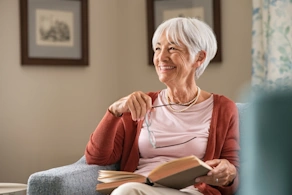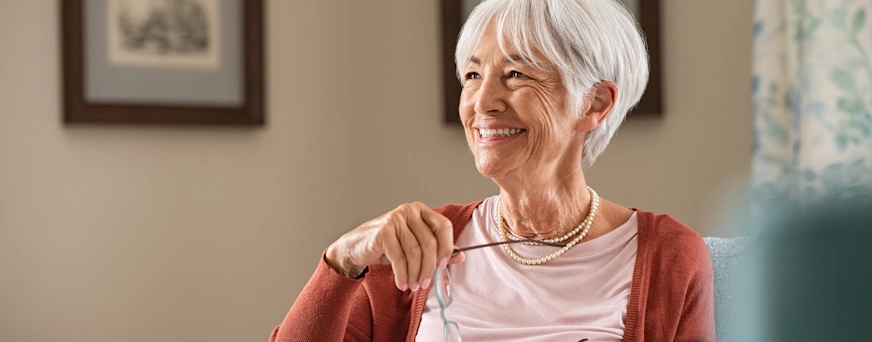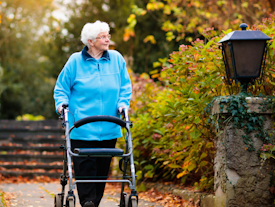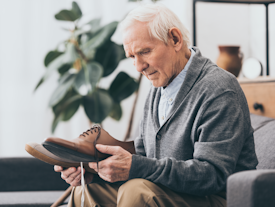Top Seniors Financial Assistance Schemes You May Not Know About
Retirement is a period that requires one to relax and enjoy, but for most elderly people, finances are a significant concern. The escalating prices of housing, healthcare, and everyday living are usually straining fixed incomes.
Although programs such as Old Age Security (OAS) and the Canada Pension Plan (CPP) are well-known, there are numerous other types of assistance that are underutilized. These untapped resources would prove to be a difference in the everyday life of the older adults.
The knowledge of them might help in stress alleviation, cost reduction, and better life quality. This article will review a few of those less well-known programs of financial aid accessible to seniors throughout the Canada.
Life Assure Product Quiz
Take our 30 second quiz and discover which Life Assure medical alert device is the right fit for you or a loved ones.
Life Assure Product Quiz
Take our 30 second quiz and discover which Life Assure medical alert device is the right fit for you or a loved ones.
Importance Of The Financial Assistance Scheme For Seniors

Seniors financial assistance is not simply a matter of alleviating their financial hardship. It is the preservation of their independence, self-respect, and health. The elderly group has limited income, and they are primarily based on social security or pension funds.
Sadly, such monies do not tend to match the increasing costs. A tight budget may soon be overwhelmed by medical bills, rent or property taxes, and utility costs.
Most seniors must make hard decisions without any assistance. Others can reduce the amount of healthy food or postpone the required home repairs.
Such choices may be detrimental to both physical and mental well-being. Isolation may increase due to financial stress, since elderly people may decide to shun social activities that they can no longer afford.
This is why it is so crucial that assistance programs exist. They provide relief on important aspects like housing, health care, and utilities.
Most of these programs are government-funded by either the federal or state government, whereas others are operated by nonprofits or community-based organizations. The combination of these will create a safety net that will assist seniors in preserving stability and security.
Sadly enough, not every senior is aware of these resources. There are those programs that are overshadowed by bigger, well-publicized programs. The rest are state-specific or not widely advertised.
The initial way to make older adults get the assistance they need is by spreading awareness. Through these programs, the elderly people will be able to stretch their budgets and lead a better lifestyle because they are not always financially strained.
Best Lesser-Known Financial Assistance Schemes For Seniors

Here are the best financial assistance schemes seniors should know about:
Provincial Property Tax Deferral and Rebate Programs
Property taxes can be overwhelming to the elderly who are living on a low income, particularly when they are connected to long-time homes. In Canada, property taxes are reduced, deferred, or rebated in a number of provinces for seniors.
As an illustration, the Property Tax Deferment Program in British Columbia permits qualified seniors to defer the payment of property taxes until the time when they sell their house or change ownership.
The Property Tax Grant is a program that assists Ontario seniors with low incomes up to an amount of $500 yearly in regard to property taxes. On the same note, the province of Quebec offers a property tax credit to seniors who live alone and have small incomes.
These programs make seniors stay longer in their homes and take away financial strains. The applications are typically offered at the local or provincial offices.
Prescription Drug Coverage Assistance
Increasing prices of drugs are an issue that worries several elderly people. In Canada, insurance coverage is not complete, but provincial drug benefit programs provide supplemental coverage.
The Trillium Drug Program in Ontario helps residents with the high prescription costs in comparison with their household income. The Fair PharmaCare Program of British Columbia lowers the out-of-pocket drug costs depending on the income level.
The seniors in Alberta are able to use the Coverage for Seniors Program, which assists in meeting a large number of drug expenses as well as some health-related services.
Such programs relieve the stress of continuous prescription costs and assist in making sure the elderly do not miss medications because of the price.
Utility Assistance Programs For Low-Income Seniors
Seniors with fixed incomes in Canada may find it hard to afford heating in their homes during the winter seasons. Fortunately, there are utility support programs.
As an example, Ontario has the Low-Income Energy Assistance Program (LEAP), which offers emergency assistance with outstanding energy bills.
The Heating Assistance Rebate Program (HARP) of Nova Scotia is a yearly rebate program that assists with the heating bills of people in winter. Alberta has the Direct Energy Emergency Fund that can assist low-income families at risk of disconnection.
Certain provinces also offer home energy efficiency incentives, like the Canada Greener Homes Grant, which assists homeowners (including seniors) in performing energy-efficient upgrades, which will reduce bills over the long term.
Local Non-Profit And Community-Based Grants
Canada Nonprofits and charities offer specific financial aid to elderly people, besides state assistance. These may consist of food schemes, emergency cash, or transport programs.
As one example, at the United Way Canada, local programs providing direct assistance, including minor emergency grants, home repair assistance, and so on, are financed.
Meals on Wheels Canada not only provides the food but, in many cases, also refers the seniors to the local resources. Several churches, community centres, and Native organizations also have funds to offer to those who are in dire need.
Veterans’ Financial Assistance Programs
In the Canadian case, veterans have other benefits that are not very well known besides regular pensions. The Veterans Independence Program (VIP) assists in meeting the expenses of services such as housekeeping, grounds maintenance, and personal care.
There are disability benefits and critical injury benefits that are supplementary to veterans with health complications that are related to service. The Veteran and Family Well-Being Fund has programs, including housing support, mental health services, and so on.
Seniors are also able to avail themselves of grants to modify their homes through Veterans Affairs Canada so that they can be accessible and secure. These are benefits that may reduce financial burden and increase standards of living.
Conclusion
Peace and security should not be denied to the seniors due to financial problems. Most seniors are familiar with social security and Medicare, but other programs that are less well-known provide equally as much.
These resources for seniors financial assistance can alleviate their daily strains with property tax relief, prescription assistance, utility aid, and veterans' benefits.







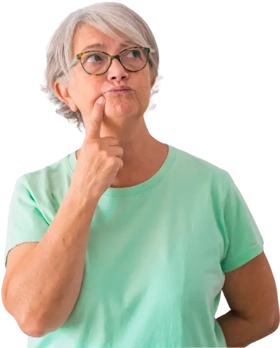



 Get Help With The Push Of A Button
Get Help With The Push Of A Button







